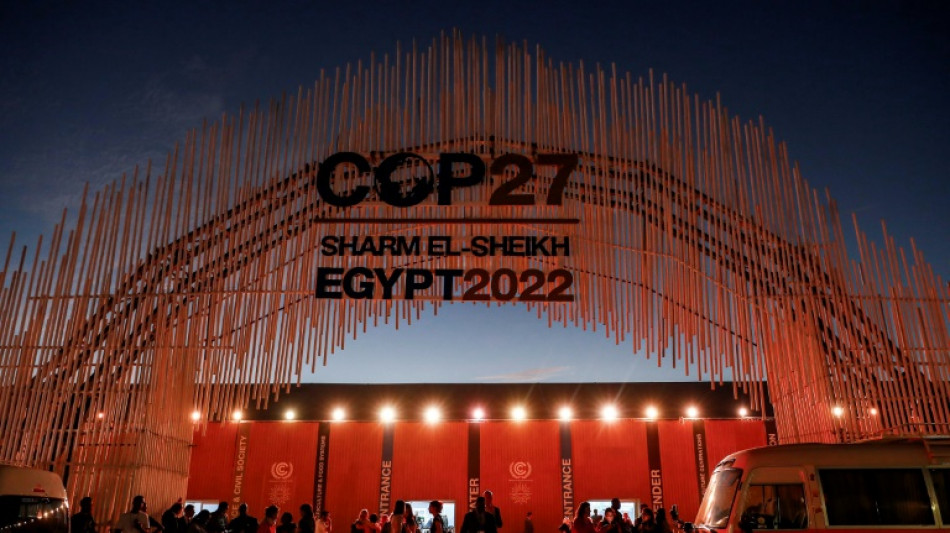
-
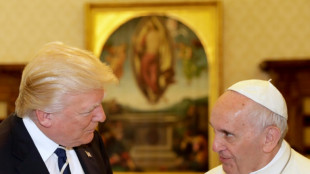 World leaders pay tribute to Pope Francis, dead at 88
World leaders pay tribute to Pope Francis, dead at 88
-
World leaders react to the death of Pope Francis

-
 Zimbabwe lead first Test despite Bangladesh spinner Mehidy's five wickets
Zimbabwe lead first Test despite Bangladesh spinner Mehidy's five wickets
-
Vatican postpones sainthood for 'God's influencer' after pope's death

-
 Pope's death prompts CONI to call for sporting postponements, minute's silence
Pope's death prompts CONI to call for sporting postponements, minute's silence
-
Stunned and sad, faithful gather at St Peter's to remember Francis
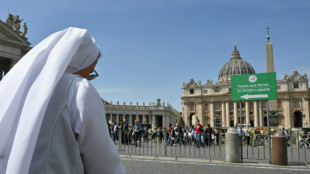
-
 Asian scam centre crime gangs expanding worldwide: UN
Asian scam centre crime gangs expanding worldwide: UN
-
Davos meet founder Klaus Schwab steps down from WEF board
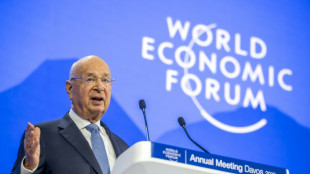
-
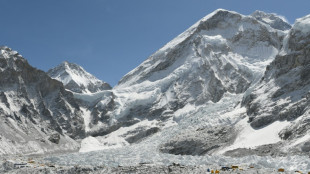 Himalayan snow at 23-year low, threatening 2 billion people: report
Himalayan snow at 23-year low, threatening 2 billion people: report
-
The beautiful game: Pope Francis's passion for football

-
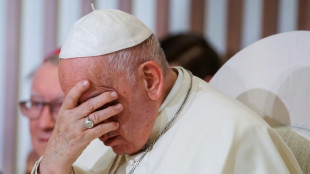 Clerical sex abuse: Pope Francis's thorniest challenge
Clerical sex abuse: Pope Francis's thorniest challenge
-
Pope Francis's delicate ties with politics in Argentina
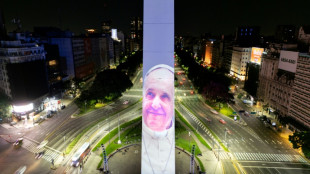
-
 Russia resumes attacks on Ukraine after Easter truce
Russia resumes attacks on Ukraine after Easter truce
-
Pope Francis has died aged 88

-
 Gaza civil defence describes medic killings as 'summary executions'
Gaza civil defence describes medic killings as 'summary executions'
-
Francis: radical leader who broke the papal mould
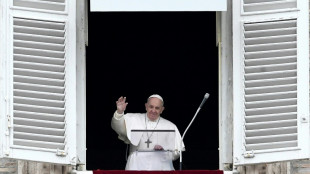
-
 Oscar stars, Max keeps mum, Sainz alive - Saudi GP talking points
Oscar stars, Max keeps mum, Sainz alive - Saudi GP talking points
-
Iyer, Kishan win back India contracts as Pant's deal upgraded

-
 Vance lands in India for tough talks on trade
Vance lands in India for tough talks on trade
-
Inside South Africa's wildlife CSI school helping to catch poachers

-
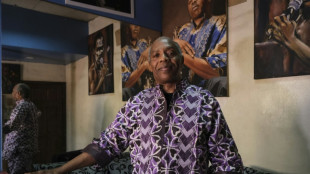 Nigerian Afrobeat legend Femi Kuti takes a look inward
Nigerian Afrobeat legend Femi Kuti takes a look inward
-
Kim Kardashian: From sex tape to Oval Office via TV and Instagram

-
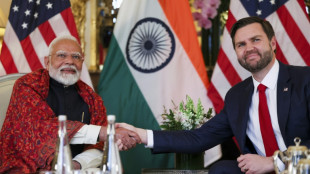 Vance in India for tough talks on trade
Vance in India for tough talks on trade
-
Thunder crush Grizzlies as Celtics, Cavs and Warriors win

-
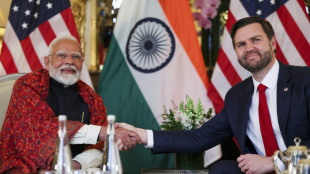 Vance heads to India for tough talks on trade
Vance heads to India for tough talks on trade
-
China slams 'appeasement' of US as nations rush to secure trade deals
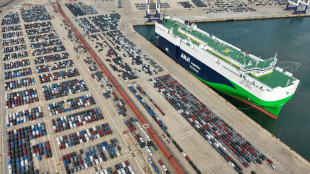
-
 'Grandpa robbers' go on trial for Kardashian heist in Paris
'Grandpa robbers' go on trial for Kardashian heist in Paris
-
Swede Lindblad gets first win in just third LPGA start

-
 Gold hits record, dollar drops as tariff fears dampen sentiment
Gold hits record, dollar drops as tariff fears dampen sentiment
-
As Dalai Lama approaches 90, Tibetans weigh future

-
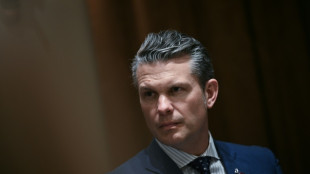 US defense chief shared sensitive information in second Signal chat: US media
US defense chief shared sensitive information in second Signal chat: US media
-
Swede Lingblad gets first win in just third LPGA start

-
 South Korea ex-president back in court for criminal trial
South Korea ex-president back in court for criminal trial
-
Thunder crush Grizzlies, Celtics and Cavs open NBA playoffs with wins

-
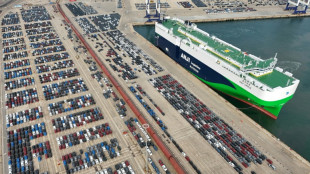 Beijing slams 'appeasement' of US in trade deals that hurt China
Beijing slams 'appeasement' of US in trade deals that hurt China
-
Trump in his own words: 100 days of quotes

-
 Padres say slugger Arraez 'stable' after scary collision
Padres say slugger Arraez 'stable' after scary collision
-
Trump tariffs stunt US toy imports as sellers play for time

-
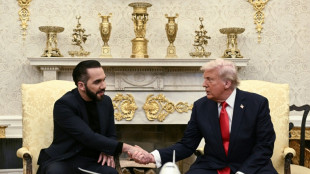 El Salvador offers to swap US deportees with Venezuela
El Salvador offers to swap US deportees with Venezuela
-
Higgo holds on for win after Dahmen's late collapse

-
 Moolec Science Enters Into Transformational Transaction Expanding Across Multiple Technology Platforms
Moolec Science Enters Into Transformational Transaction Expanding Across Multiple Technology Platforms
-
El Salvador's president proposes prisoner exchange with Venezuela
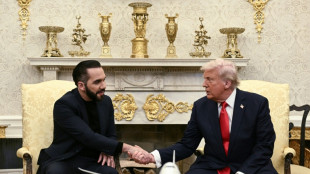
-
 Gilgeous-Alexander, Jokic, Antetokounmpo named NBA MVP finalists
Gilgeous-Alexander, Jokic, Antetokounmpo named NBA MVP finalists
-
Thomas ends long wait with playoff win over Novak

-
 Thunder rumble to record win over Grizzlies, Celtics top Magic in NBA playoff openers
Thunder rumble to record win over Grizzlies, Celtics top Magic in NBA playoff openers
-
Linesman hit by projectile as Saint-Etienne edge toward safety

-
 Mallia guides Toulouse to Top 14 win over Stade Francais
Mallia guides Toulouse to Top 14 win over Stade Francais
-
Israel cancels visas for French lawmakers

-
 Russia and Ukraine trade blame over Easter truce, as Trump predicts 'deal'
Russia and Ukraine trade blame over Easter truce, as Trump predicts 'deal'
-
Valverde stunner saves Real Madrid title hopes against Bilbao


Global South needs $2 trillion a year to tame, cope with climate
Developing and emerging countries -- excluding China -- need investments well beyond $2 trillion annually by 2030 if the world is to stop the global warming juggernaut and cope with its impacts, according to a UN-backed report released Tuesday.
A trillion dollars should come from rich countries, investors and multilateral development banks, said the analysis commissioned by Britain and Egypt, hosts respectively of the 2021 UN climate summit in Glasgow and this week's COP27 event in Sharm el-Sheikh.
The rest of the money -- about $1.4 trillion -- must originate domestically from private and public sources, said the report.
Current investments in emerging and developing economies other than China stand at about $500 billion.
The new 100-page analysis, Finance for Climate Action, is presented as an investment blueprint for greening the global economy quickly enough to meet Paris climate treaty goals of capping the rise in global temperatures below two degrees Celsius, and at 1.5C if possible.
Warming beyond that threshold, scientists warn, could push Earth toward an unlivable hothouse state.
"Rich countries should recognise that it is in their vital self-interest -- as well as a matter of justice given the severe impacts caused by their high levels of current and past emissions -- to invest in climate action in emerging market and developing countries," said one of the report's leads, economist Nicholas Stern, who also authored a landmark report on the economics of climate change.
The report is among the first to map out the investment needed across the three broad areas covered in UN climate talks: reduction of the greenhouse gas emissions that drive warming (mitigation), adapting to future climate impacts (adaptation), and compensating poor and vulnerable nations for unavoidable damages already incurred, known as "loss and damage".
- Fossil fuel lock-in -
It calls for grants and low-interest loans from the governments of developed countries to double from about $30 billion annually today to $60 billion by 2025.
"These sources of finance are critical for emerging markets and developing countries to support action on restoring land and nature, and for protecting against and responding to the loss and damage due to climate change impacts," the authors said.
"Emerging market" countries include large economies in the global south that have seen rapid growth -- coupled with rising greenhouse gas emissions -- in recent decades, including India, Brazil, South Africa, Indonesia and Vietnam.
Historically seen as part of this group, China was excluded from the new estimates, presumably because of its unique and hybrid status.
Its economy -- the second largest in the world -- is in many respects advanced, and Beijing has positioned itself as a major international investor in its own right, through its Belt and Road Initiative and the promotion of "South-South" investment across the developing world.
In the context of climate change, developing nations include the world's poorest economies, many of them in Africa, and those most vulnerable to climate hazards, such as small island states facing existential threats from sea-level rise and ever-more powerful cyclones.
"Most of the growth in energy infrastructure and consumption projected to occur over the next decade will be in emerging market and developing countries," said Stern.
"If they lock in dependence on fossil fuels and emissions, the world will not be able to avoid dangerous climate change, damaging and destroying billions of lives and livelihoods in both rich and poor countries."
H.Seidel--BTB



